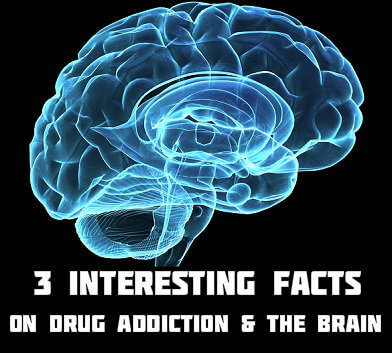 Your brain is more complex than the world’s most advanced computer. It weighs in at only about three pounds but it controls everything your body does, from being able to see, hear and breathe, to being able to interpret the world around you. The brain also allows you to decide which behaviors are appropriate and whether or not to act on them, shapes your thoughts, stores your memories and controls your emotions. Drug addiction facts, your brain have an interesting, but precarious, relationship.
Your brain is more complex than the world’s most advanced computer. It weighs in at only about three pounds but it controls everything your body does, from being able to see, hear and breathe, to being able to interpret the world around you. The brain also allows you to decide which behaviors are appropriate and whether or not to act on them, shapes your thoughts, stores your memories and controls your emotions. Drug addiction facts, your brain have an interesting, but precarious, relationship.
Taking drugs affects how the brain functions all around. The below facts about addiction and your brain will explain more about how addiction works.
Drug Addiction Facts And Your Brain
1. Drugs tap into the brain’s communication and interfere with the normal process of how neurons send, receive and process information.
Some types of drugs, such as heroin and even marijuana, have a chemical structure that is similar to that of a natural neurotransmitter. They attach onto the brain’s neurons and “fool” them. Since the drug isn’t a natural neurotransmitter, drugs transmit abnormal messages throughout the body’s natural “network.” When this over and over, it can change how well the brain works.
In the case of amphetamines or cocaine, which are “uppers,” the neurons may either release abnormally large levels of natural neurotransmitters or prevent the normal recycling of brain chemicals. The disruption causes an amplified message which disrupts communication channels.
2. Drugs work on the brain’s reward system to flood the circuit with the neurotransmitter dopamine.
Along with pleasure, dopamine regulates emotion, motivation, and movement. When it activates at normal levels, it rewards normal behaviors. When drugs overstimulate this neurotransmitter, the result is a euphoric feeling.
As with many interesting facts about addiction, there’s always a downside. The user is taught to use the drug again and again to repeat the experience. However, with all drugs, a tolerance can quickly build up, thus easily starting the beginning of an addiction.
3. Along with other factors, biology and brain development greatly affect the chances of someone becoming addicted to drugs.
Because young people’s brains are still developing in the areas of judgment, decision making, and self-control, adolescents are particularly prone to risk-taking behaviors, including trying and using drugs. And the earlier that drugs are first used, the more likely that person is to become an addict.
Mental disorders also play a role as mental illness can both affect and be affected by drug abuse.
Treatment For Drug Addiction And Mental Health Issues
Since drug addiction is a brain disorder, it requires professional treatment to stop the cycle of looking to chemicals to feel pleasurable experiences. After a time, a person who has been using drugs can feel depressed without a chemical source of pleasure.
Our effective drug addiction programs here at The Dunes East Hampton addresses this concern by offering an individualized treatment plan to treat drug addiction and your brain, which includes mental health treatment if needed. We provide a structured, private and discrete place for you or your loved one to recover in comfort and luxury.
If You Or Your Loved One Are Ready To Get Well, We Are Ready To Help.
We Will Walk With You Every Step Of The Way. Call Us Now!







